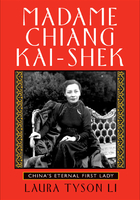That all Defoe's novels, with the exception of "Robinson Crusoe," should have been covered with the dust of neglect for many generations, is a plain proof of how much fashions in taste affect the popularity of the British classics. It is true that three generations or so ago, Defoe's works were edited by both Sir Walter Scott and Hazlitt, and that this masterly piece of realism, "Captain Singleton," was reprinted a few years back in "The Camelot Classics," but it is safe to say that out of every thousand readers of "Robinson Crusoe" only one or two will have even heard of the "Memoirs of a Cavalier," "Colonel Jack," "Moll Flanders," or "Captain Singleton." It is indeed distressing to think that while many scores of thousands of copies of Lord Lytton's flashy romance, "Paul Clifford," have been devoured by the public, "Captain Singleton" has remained unread and almost forgotten. But the explanation is simple. Defoe's plain and homely realism soon grew to be thought vulgar by people who themselves aspired to be refined and genteel. The rapid spread of popular education, in the middle of last century, was responsible for a great many aberrations of taste, and the works of the two most English of Englishmen, Defoe and Hogarth, were judged to be hardly fitting for polite society, as we may see from Lamb's Essay on Hogarth, and from an early edition of Chambers's "Cyclopaedia of English Literature" (1843), where we are told: "Nor is it needful to show how elegant and reflective literature, especially, tends to moralise, to soften, and to adorn the soul and life of man." "Unfortunately the taste or?circumstances of Defoe led him mostly into low life, and his characters are such?as we cannot sympathise with. The whole arcana of roguery and villany seems to have been open to him…. It might be thought that the good taste which led Defoe to write in a style of such pure and unpretending English, instead of the inflated manner of vulgar writers,?would have dictated a more careful selection of his subjects, and kept him from wandering so frequently into the low and disgusting purlieus of vice. But this moral and tasteful discrimination seems to have been wholly wanting," &c. The 'forties were the days when critics still talked learnedly of the "noble style," &c., "the vulgar," of "sinking" or "rising" with "the subject," the days when Books of Beauty were in fashion, and Rembrandt's choice of beggars, wrinkled faces and grey hairs, for his favourite subjects seemed a low and reprehensible taste in "high art." Though critics to-day still ingenuously confound an artist's subject with his treatment of it, and prefer scenes of life to be idealised rather than realised by writers, we have advanced a little since the days of the poet Montgomery, and it would be difficult now to find anybody writing so confidently-"Unfortunately the taste or circumstances of Defoe led him mostly into low life," however much the critic might believe it. But let us glance at a few passages in "Captain Singleton," which may show us why Defoe excels as a realist, and why his descriptions of "low life" are artistically as perfect as any descriptions of "higher life" in the works of the English novelists. Take the following description of kidnapping:-
"The woman pretending to take me up in her arms and kiss me, and play with me, draws the girl a good way from the house, till at last she makes a fine story to the girl, and bids her go back to the maid, and tell her where she was with the child; that a gentlewoman had taken a fancy to the child and was kissing it, but she should not be frightened, or to that purpose; for they were but just there; and so while the girl went, she carried me quite away.-Page 2.
Now here, in a single sentence, Defoe catches for us the whole soul and character of the situation. It?seems?very simple, but it sums up marvellously an exact observation and knowledge of the arts of the gipsy child-stealer, of her cunning flattery and brassy boldness, and we can see the simple little girl running back to the house to tell the nurse that a fine lady was kissing the child, and had told her to tell where they were and she should not be frightened, &c.; and this picture again calls up the hue and cry after the kidnappers and the fruitless hopes of the parents. In a word, Defoe has condensed in the eight simple lines of his little scene all that is essential to its living truth; and let the young writer note that it is ever the sign of the master to do in three words, or with three strokes, what the ordinary artist does in thirty. Defoe's imagination is so extraordinarily comprehensive in picking out just those little matter-of-fact details that suggest all the other aspects, and that emphasise the character of the scene or situation, that he makes us believe in the actuality of whatever he is describing. So real, so living in every detail is this apocryphal narrative, in "Captain Singleton," of the crossing of Africa by a body of marooned sailors from the coast of Mozambique to the Gold Coast, that one would firmly believe Defoe was committing to writing the verbal narrative of some adventurer in the flesh, if it were not for certain passages-such as the description of the impossible desert on page 90, which proves that Defoe was piecing together his description of an imaginary journey from the geographical records and travellers' tales of his contemporaries, aided perhaps by the confused yarns of some sailor friends. How substantially truthful in spirit and in detail is Defoe's account of Madagascar is proved by the narrative of Robert Drury's "Captivity in Madagascar," published in 1729. The natives themselves, as described intimately by Drury, who lived amongst them for many years, would produce just such an effect as Defoe describes on rough sailors in their perilous position. The method by which Defoe compels us to accept improbabilities, and lulls our critical sense asleep, is well shown in the following passages:-
"Thieving, lying, swearing, forswearing, joined to the most abominable lewdness, was the stated practice of the ship's crew; adding to it, that with the most unsufferable boasts of their own courage, they were, generally speaking, the most complete cowards that I ever met with."-Page 7.
"All the seamen in a body came up to the rail of the quarter-deck, where the captain was walking with some of his officers, and appointing the boatswain to speak for them, he went up, and falling on his knees to the captain, begged of him in the humblest manner possible, to receive the four men on board again, offering to answer for their fidelity, or to have them kept in chains, till they came to Lisbon, and there to be delivered up to justice, rather than, as they said, to have them left, to be murdered by savages, or devoured by wild beasts. It was a great while ere the captain took any notice of them, but when he did, he ordered the boatswain to be seized, and threatened to bring him to the capstan for speaking for them…. Upon this severity, one of the seamen, bolder than the rest, but still with all possible respect to the captain, besought his honour, as he called him, that he would give leave to some more of them to go on shore, and die with their companions, or, if possible, to assist them to resist the barbarians."-Page 18.
Now the first passage we have quoted about the cowardice, &c., of the Portuguese crew is not in keeping with the second passage, which shows the men as "wishing to die with their companions"; but so actual is the scene of the seamen "in a body coming up to the rail of the quarter-deck," that we cannot but believe the thing happened so, just as we believe in all the thousand little details of the imaginary narrative of "Robinson Crusoe." This feat of the imagination Defoe strengthens in the most artful manner, by putting in the mouths of his characters various reflections to substantiate the narrative. For example, in the description, on page 263, of the savages who lined the perilous channel in a half-moon, where the European ship lay, we find the afterthoughts are added so naturally, that they would carry conviction to any judge or jury:-
"They little thought what service they had done us, and how unwittingly, and by the greatest ignorance, they had made themselves pilots to us, while we, having not sounded the place, might have been lost before we were aware.?It is true we might have sounded our new harbour, before we had ventured out; but I cannot say for certain, whether we should or not; for I, for my part, had not the least suspicion of what our real case was; however, I say, perhaps, before we had weighed, we should have looked about us a little."
Turning to the other literary qualities that make Defoe's novels great, if little read, classics, how delightful are the little satiric touches that add grave weight to the story. Consider the following: "My good gipsy mother, for some of her worthy actions, no doubt, happened in process of time to be hanged, and as this fell out something too soon for me to be perfected in the strolling trade," &c.(p. 3). Every other word here is dryly satiric, and the large free callousness and careless brutality of Defoe's days with regard to the life of criminals is conveyed in half a sentence. And what an amount of shrewd observation is summed up in this one saying: "Upon these foundations, William said he was satisfied we might trust them; for, says William, I would as soon trust a man whose interest binds him to be just to me, as a man whose principle binds himself" (p. 227). Extremely subtle is also this remark: "Why, says I, did you ever know a pirate repent??At this he started a little and returned,?At the gallows?I have known?one?repent, and Ihope?thou wilt be the second." The character of William the Quaker pirate is a masterpiece of shrewd humour. He is the first Quaker brought into English fiction, and we know of no other Friend in latter-day fiction to equal him. Defoe in his inimitable manner has defined surely and deftly the peculiar characteristics of the sect in this portrait. On three separate occasions we find William saving unfortunate natives or defenceless prisoners from the cruel and wicked barbarity of the sailors. At page 183, for example, the reader will find a most penetrating analysis of the dense stupidity which so often accompanies man's love of bloodshed. The sketch of the second lieutenant, who was for "murdering the negroes to make them tell," when he could not make them even understand what he wanted, is worthy of Tolstoy. We have not space here to dwell upon the scores of passages of similar deep insight which make "Captain Singleton" a most true and vivid commentary on the life of Defoe's times, but we may call special attention to the passage on page 189 which describe the sale of the negroes to the planters; to the description of the awakening of the conscience of Captain Singleton through terror at the fire-cloud (page 222); and to the extraordinarily picturesque conversation between William and the captive Dutchman (page 264). Finally, if the reader wishes to taste Defoe's flavour in its perfection let him examine carefully those passages in the concluding twenty pages of the book, wherein Captain Singleton is shown as awakening to the wickedness of his past life, and the admirable dry reasoning of William by which the Quaker prevents him from committing suicide and persuades him to keep his ill-gotten wealth, "with a resolution to do what right with it we are able; and who knows what opportunity Providence may put into our hands…. As it is without doubt, our present business is to go to some place of safety, where we may wait His will." How admirable is the passage about William's sister, the widow with four children who kept a little shop in the Minories, and that in which the penitent ex-pirates are shown us as hesitating in Venice for two years before they durst venture to England for fear of the gallows.
"Captain Singleton" was published in 1720, a year after "Robinson Crusoe," when Defoe was fifty-nine. Twenty years before had seen "The True-Born Englishman" and "The Shortest Way with the Dissenters"; and we are told that from "June 1687 to almost the very week of his death in 1731 a stream of controversial books and pamphlets poured from his pen commenting upon and marking every important passing event." The fecundity of Defoe as a journalist alone surpasses that of any great journalist we can name, William Cobbett not excepted, and we may add that the style of "Captain Singleton," like that of "Robinson Crusoe," is so perfect that there is not a single ineffective passage, or indeed a weak sentence, to be found in the book.
EDWARD GARNETT.
The Life, Adventures & Piracies of the Famous Captain Singleton
As it is usual for great persons, whose lives have been remarkable, and whose actions deserve recording to posterity, to insist much upon their originals, give full accounts of their families, and the histories of their ancestors, so, that I may be methodical, I shall do the same, though I can look but a very little way into my pedigree, as you will see presently.
If I may believe the woman whom I was taught to call mother, I was a little boy, of about two years old, very well dressed, had a nursery-maid to attend me, who took me out on a fine summer's evening into the fields towards Islington, as she pretended, to give the child some air; a little girl being with her, of twelve or fourteen years old, that lived in the neighbourhood. The maid, whether by appointment or otherwise, meets with a fellow, her sweetheart, as I suppose; he carries her into a public-house, to give her a pot and a cake; and while they were toying in the house the girl plays about, with me in her hand, in the garden and at the door, sometimes in sight, sometimes out of sight, thinking no harm.
At this juncture comes by one of those sort of people who, it seems, made it their business to spirit away little children. This was a hellish trade in those days, and chiefly practised where they found little children very well dressed, or for bigger children, to sell them to the plantations.
The woman, pretending to take me up in her arms and kiss me, and play with me, draws the girl a good way from the house, till at last she makes a fine story to the girl, and bids her go back to the maid, and tell her where she was with the child; that a gentlewoman had taken a fancy to the child, and was kissing of it, but she should not be frighted, or to that purpose; for they were but just there; and so, while the girl went, she carries me quite away.
From this time, it seems, I was disposed of to a beggar woman that wanted a pretty little child to set out her case; and after that, to a gipsy, under whose government I continued till I was about six years old. And this woman, though I was continually dragged about with her from one part of the country to another, yet never let me want for anything; and I called her mother; though she told me at last she was not my mother, but that she bought me for twelve shillings of another woman, who told her how she came by me, and told her that my name was Bob Singleton, not Robert, but plain Bob; for it seems they never knew by what name I was christened.
It is in vain to reflect here, what a terrible fright the careless hussy was in that lost me; what treatment she received from my justly enraged father and mother, and the horror these must be in at the thoughts of their child being thus carried away; for as I never knew anything of the matter, but just what I have related, nor who my father and mother were, so it would make but a needless digression to talk of it here.
My good gipsy mother, for some of her worthy actions no doubt, happened in process of time to be hanged; and as this fell out something too soon for me to be perfected in the strolling trade, the parish where I was left, which for my life I can't remember, took some care of me, to be sure; for the first thing I can remember of myself afterwards, was, that I went to a parish school, and the minister of the parish used to talk to me to be a good boy; and that, though I was but a poor boy, if I minded my book, and served God, I might make a good man.
I believe I was frequently removed from one town to another, perhaps as the parishes disputed my supposed mother's last settlement. Whether I was so shifted by passes, or otherwise, I know not; but the town where I last was kept, whatever its name was, must be not far off from the seaside; for a master of a ship who took a fancy to me, was the first that brought me to a place not far from Southampton, which I afterwards knew to be Bussleton; and there I attended the carpenters, and such people as were employed in building a ship for him; and when it was done, though I was not above twelve years old, he carried me to sea with him on a voyage to Newfoundland.
I lived well enough, and pleased my master so well that he called me his own boy; and I would have called him father, but he would not allow it, for he had children of his own. I went three or four voyages with him, and grew a great sturdy boy, when, coming home again from the banks of Newfoundland, we were taken by an Algerine rover, or man-of-war; which, if my account stands right, was about the year 1695, for you may be sure I kept no journal.
I was not much concerned at the disaster, though I saw my master, after having been wounded by a splinter in the head during the engagement, very barbarously used by the Turks; I say, I was not much concerned, till, upon some unlucky thing I said, which, as I remember, was about abusing my master, they took me and beat me most unmercifully with a flat stick on the soles of my feet, so that I could neither go or stand for several days together.
But my good fortune was my friend upon this occasion; for, as they were sailing away with our ship in tow as a prize, steering for the Straits, and in sight of the bay of Cadiz, the Turkish rover was attacked by two great Portuguese men-of-war, and taken and carried into Lisbon.















